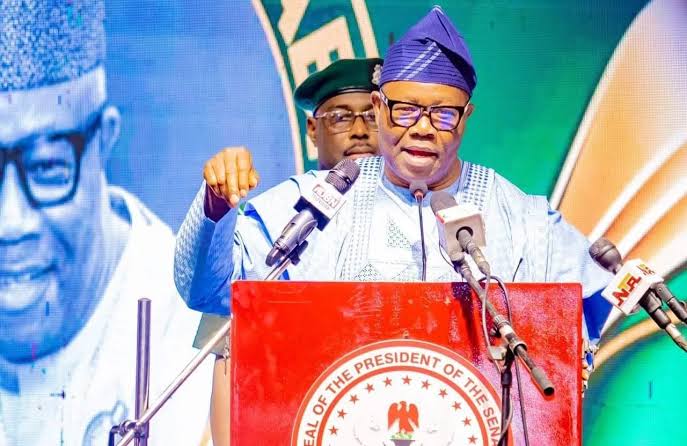The Nigerian Senate has been embroiled in a controversy involving allegations of sexual harassment against its President, Godswill Akpabio, by suspended Senator Natasha Akpoti-Uduaghan. Akpabio vehemently denies these accusations, characterizing them as baseless attempts to distract him and the Senate from their legislative duties. This public denial took place during a plenary session where the Senate successfully passed four significant tax reform bills, a point Akpabio emphasized to underscore the Senate’s continued focus on its responsibilities despite the swirling controversy. He asserted that any allegations levelled against him would require substantial evidence before any action is taken, maintaining his commitment to upholding the public interest. Akpabio further dismissed calls for his resignation, drawing parallels to instances of wrongful convictions in the United States, arguing that stepping down based on unproven allegations would set a dangerous precedent.
The genesis of this dispute traces back to a seating arrangement within the Senate chamber, an issue that Senator Akpoti-Uduaghan claims was designed to marginalize her. This initial disagreement escalated significantly when Akpoti-Uduaghan publicly accused Akpabio of sexual harassment, alleging that her suspension from the Senate was a retaliatory measure for rejecting his advances. She took her allegations to the international stage during the Women in Parliament session at the Inter-Parliamentary Union meeting held at the United Nations headquarters in New York, calling for global scrutiny of the Nigerian Senate’s actions against her. Her suspension, which included the withdrawal of her security detail, salary cuts, and a six-month ban from the National Assembly, has further fueled the controversy and intensified the public scrutiny on the Nigerian Senate.
Akpoti-Uduaghan’s accusations and subsequent suspension sparked a legal battle between the two senators. Akpabio filed a motion in the Federal High Court in Abuja demanding the removal of a satirical video apology posted by Akpoti-Uduaghan on social media. In the video, she mockingly apologized to Akpabio for “not allowing him to have his way,” a post widely perceived as sarcastic and further exacerbating the tensions between them. The video referenced “maintaining dignity and self-respect,” implying that Akpabio believed no woman could refuse his advances. This public exchange has intensified the already charged atmosphere surrounding the allegations and the subsequent legal proceedings.
The legal proceedings surrounding this case have become increasingly complex. Akpoti-Uduaghan initially sought legal intervention to prevent an investigation into her conduct by the Senate Committee on Ethics, Privileges, and Public Petitions, chaired by Senator Neda Imasuen. Despite her efforts, the Senate proceeded with her suspension, a decision she contends is directly linked to her accusations against Akpabio. Justice Binta Nyako, presiding over the case, issued a gag order prohibiting public statements on the matter while it remains sub judice. However, Akpabio’s legal team argues that the satirical video posted by Akpoti-Uduaghan constitutes a violation of this order, further complicating the legal landscape of this dispute.
Akpabio’s legal representatives, led by Kehinde Ogunwumiju (SAN), have filed an application requesting the court to compel Akpoti-Uduaghan to delete the controversial video and the accompanying post from all her social media platforms. Their application also demands that she publish a written apology in at least two nationally circulated newspapers and submit a sworn affidavit as proof of compliance with the court’s directives. This legal maneuver signifies a further escalation in the ongoing battle between the two senators, with Akpabio’s legal team seeking to enforce the court’s gag order and hold Akpoti-Uduaghan accountable for what they perceive as a violation.
This ongoing dispute between Senate President Godswill Akpabio and suspended Senator Natasha Akpoti-Uduaghan continues to capture public attention and raise critical questions about accountability, due process, and the handling of sexual harassment allegations within the Nigerian political system. The legal proceedings will undoubtedly play a significant role in determining the outcome of this controversy and may have far-reaching implications for how such allegations are addressed in the future. The clash between these two prominent figures also highlights the challenges faced by women in positions of power and the complexities of navigating accusations of this nature within a highly charged political environment. The case will be closely watched as it unfolds, with its resolution potentially setting a precedent for future cases involving similar allegations within the Nigerian political sphere.


